#digitization
Text
The National Archives has unveiled a new state-of-the-art digitization center!
Equipment in the new center includes high-speed scanners and overhead camera systems that handle various record types and formats. Thanks to this equipment, the National Archives will be able to digitize up to 10 times as many records per year, providing Americans with increased access.
“We are committed to expanding free, online public access to our holdings through the National Archives Catalog. This new digitization center will help us meet our strategic goal of digitizing and making available 500 million pages of records by September 30, 2026, and even larger numbers after that.” - Archivist of the United States Dr. Colleen Shogan.
Learn more: https://www.archives.gov/news/articles/mass-digitization-center-college-park-opening
233 notes
·
View notes
Text
The Internet Archive is under attack by corporations seeking to wrest more and more of our fair use rights, our public spaces and our communities from the public good. The Archive was recently forced into a settlement for scanning and digitizing legally purchased books. They are now facing a $325 million lawsuit for accepting donations of old 78 RPM historical music records that were digitized by volunteers. The goal is not only to stop the distribution of these works, but to create new legal precedents that make it illegal to preserve or archive for any reason. This will have a significant impact on our culture, our communities, and our future
Here is how you can help them
1. Use The Internet Archive Site
2. Save websites via "Save Page Now" browser tool
3. Become a patron to get a free "library card"
4. Curate & Upload to the Archive
5. Tell People That the Internet Archive Exists
6. Browse The Many, Many Collections
7. Take care of yourself and the people you care about
(Link will take you to a blog article that goes into these suggestions in detail)
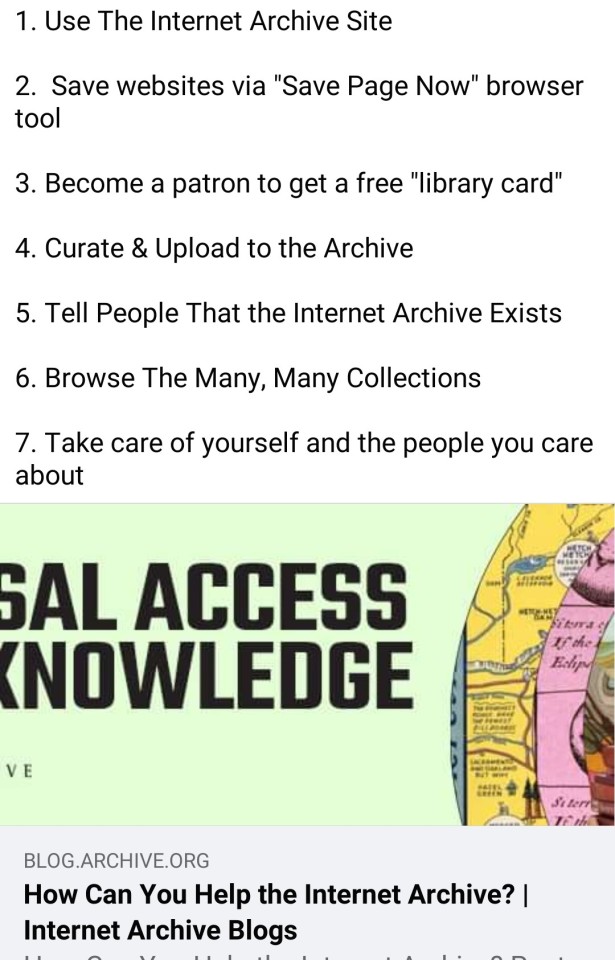
#the internet archive#internet archive#fair use#copyright abuse#capitalism#digital archiving#digitization#digital preservation#archiving#fandom history#our culture#our voices#our past#our present#our future#libraries
494 notes
·
View notes
Photo
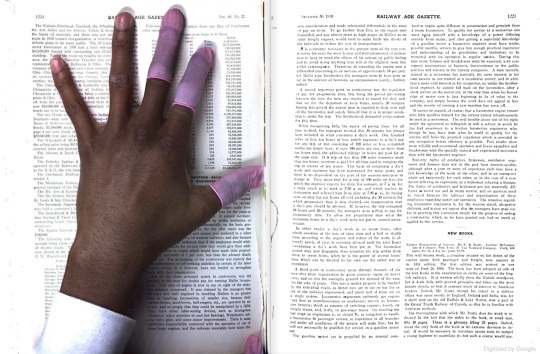
Holding down a torn page.
From p. 1124-25 of Railway Age (Volume 49, 1910).
#Google Books#digitization#art#lit#tech#books#rare books#book art#library#libraries#hand#finger cots#spread#used books#old books#photography#new media
2K notes
·
View notes
Text
199 notes
·
View notes
Text
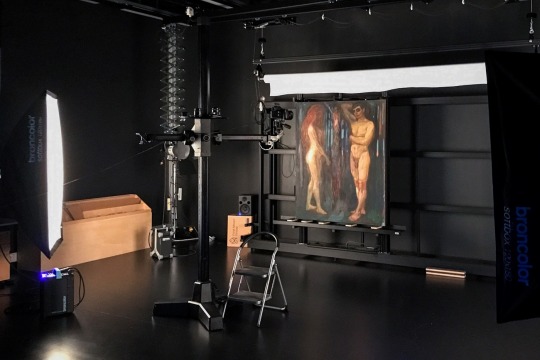
The process of making Edvard Munch's artworks availble online...
91 notes
·
View notes
Text


stepping out into the art scene once again after having not posted art on any platform for over a year, very roughly digitized an uzi sketch from my notes
#my art#fanart#glitch productions#uzi doorman#murder drones#murder drones uzi#murder drones fanart#art#digital art#digitization#md uzi#md fanart#iveraines art
42 notes
·
View notes
Text
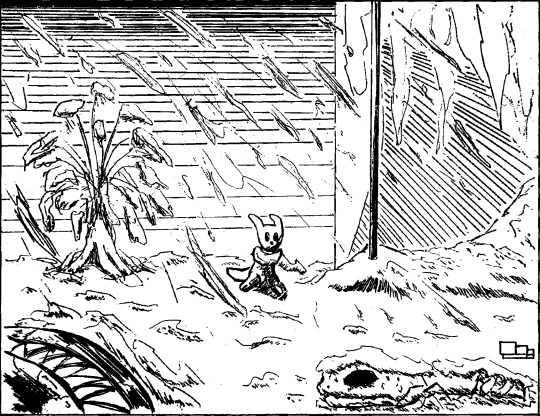
They say it's a world where it used to rain.
#rain world#drawing#illustration#traditional art#my art#digitization#fanart#fanfic#snow#pretty much just a concept i've thinking if slugcats were to wear scarfs in a middle of a snow storm#slugcat#rw slugcat#rw lizard#rain world art
21 notes
·
View notes
Text
Be kind to the microfilm scanner!
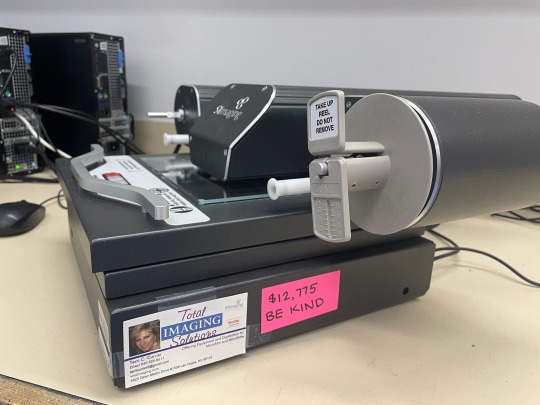
132 notes
·
View notes
Text
21 notes
·
View notes
Note
Please innumerate for us the specialized problems of the library sciences.
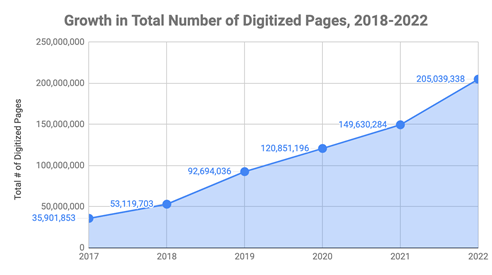
Let me start with the caveat that my information is based on my experiences at the National Archives more than a decade ago, and policy has definitely changed on this front as we can see from this graph of recent digitization - apparently NARA wants to get to 85% digitization by 2026. (Even still, I'd note that the records of the WPA are <0.001% digitized.)
However, back when I was doing the research that would eventually become my first book, I remember being at the National Archives II building in College Park, Maryland (Go Terps!) and getting really frustrated that all the records of the WPA were only available in their original physical form and that all the guides and indexes were also in paper only and were all from the 1970s, and I asked the archivist why the hell the National Archives hadn't been digitized already.
This is what they told me: if it's handled correctly and stored in the right environmental circumstances, paper can last a thousand years. Carbon copies can last even longer, if they don't rip. (Seriously, the bastard things are like onion skins, they'll split if you look at them funny.) Microfilm is slightly more technologically advanced than paper, but it only lasts 500 years in the right conditions.
We've only had computers en masse since the 1980s, and already there's a huge amount of records (especially from the early years) that we don't have any more, because the hard drives got re-formatted due to higher costs of storage space back in the day, or because old computers got thrown out when they were replaced by newer models and the hard drives are all rotting in landfills somewhere, or because backwards compatibility broke down and we just can't read those file types on our modern computers, or because the actual data got corrupted on the disc, or because some legacy company is asserting copyright against a video game museum, or because some political hack and/or president of the United States decided to violate the Presidential Records Act.
While we thought that the internet would cause an explosion of written records from ordinary people on the scale of the advent of mass literacy, there are vast swathes of the early internet that simply do not exist any more because the servers got switched off when Geocities et al. folded in the dot-com bubble burst or when everyone migrated to Web 2.0, and the Internet Archive tries its best (bless its heart, affectionately) but it can't be everywhere and save everything.
As a result, the archivist told me, digitization is a fraught question: what file format do we use? How do we know that file format will still be compatible and backwards-compatible in 50 years? 100? Longer? Do we keep everything locally or store it on the cloud, and how do we ensure that the storage mechanisms won't fail if there's a blackout or a virus or whatever? Do we digitize everything now, or do we wait until optical character recognition improves enough to the point where digitized records can be searched for words and phrases? Etc.
Keep in mind, I am a public policy historian who studies the 20th century U.S - I work primarily with the official records and the central archives of the richest government in the world. From a library sciences perspectives, this is kind of an ideal scenario, and it's still kind of fucked up. (Let me tell you, the rage and grief I felt when I learned that most of the General File of the Public Works Administration was thrown away by the National fucking Archives and Records Administration in the mid-1950s because they were running out of shelf space in the D.C location and didn't think these records were important...)

Now imagine what it's like at a local historical society or a small liberal arts college, or the national museum of a developing nation for that matter, who do not have the resources for the kind of grand digitization project that NARA started doing five years ago. Think of the sheer scale of historical records that sleep, unseen and untouched perhaps for decades and perhaps for ever, in little cubbyholes all across the world. Among professionals, historical records are measured in linear and cubic feet - think about that for a second, how many pages of paper there are in a foot when you stack them up, and how many hundreds and thousands and millions of feet there are across the face of the world. Think of all the millions of feet of pieces of paper that have been lost to us because of fire or rot or war or time itself.
This is why Peter Turchin is a quack. Historical records are not a standardized little database for social scientists to plug their fucking spreadsheets into; historians don't play that kind of bullshit t-ball, with all our data neatly packaged and handed to us on a silver platter. Our profession is not a social science, it's a goddamn treasure hunt through boxes that were never catalogued or categorized (or that were re-catalogued so many times no one remembers how they were put together in the first place) to find writing that no one has read since the authors died. All of us know that our work, our understanding, will always be partial and limited, because memory is infinitely fragile and the very idea of historical preservation is a mad existential defiance of entropy itself. These records are real, they are fragile - to hell with the Library of Alexandria, remember the National Museum of Brazil? - and they are all that is left to us of the dead.
104 notes
·
View notes
Text

Really got this... interesting idea about this sort of image.
What do you think?
———————————————————-
If you’d like to Support Me, you can Donate on Patreon.
I also sell Kinky Comics!
……………………………………………………………………………………………
For more of my writing and illustrations, do visit:
LinkTree | Twitter |Pixiv | DeviantArt | Gumroad | Picarto
#my captions#ai art#hypnokink#running bikini#track and field#fake#mental transformation#digitization#technosexuality
91 notes
·
View notes
Text
From the article:
"People in Halifax were able to digitize their historical photographs on Sunday and share them publicly as part of an initiative by the Halifax municipal archives.
"The archives held a Scan-a-thon at the Halifax Central Library for members of the public to bring in treasured photographs, slides and negatives that showed local history.
"Municipal archivist Susan McClure said the archives are looking for any historical photos, including neighbourhoods, construction projects and pictures connected to the railway."
#archives#archivists#archive workers#librarians#library workers#tumblarians#Halifax#Nova Scotia#Canadian libraries#public libraries#Halifax Central Library#scan-a-thon#i love that word it's just so neat#local history#digitization#citizen archivists#citizen historians
30 notes
·
View notes
Text
The Internet Archive is under attack by corporations seeking to wrest more and more of our fair use rights, our public spaces and our communities from the public good. The Archive was recently forced into a settlement for scanning and digitizing legally purchased books. They are now facing a $325 million lawsuit for accepting donations of old 78 RPM historical music records that were digitized by volunteers. The goal is not only to stop the distribution of these works, but to create new legal precedents that make it illegal to preserve or archive for any reason. This will have a significant impact on our culture, our communities, and our future
Here is how you can help them
1. Use The Internet Archive Site
2. Save websites via "Save Page Now" browser tool
3. Become a patron to get a free "library card"
4. Curate & Upload to the Archive
5. Tell People That the Internet Archive Exists
6. Browse The Many, Many Collections
7. Take care of yourself and the people you care about
(Link will take you to a blog article that goes into these suggestions in detail)

#the internet archive#internet archive#fair use#copyright abuse#capitalism#digital archiving#digitization#digital preservation#archiving#fandom history#our culture#our voices#our past#our present#our future#libraries
85 notes
·
View notes
Text
132 notes
·
View notes
Text
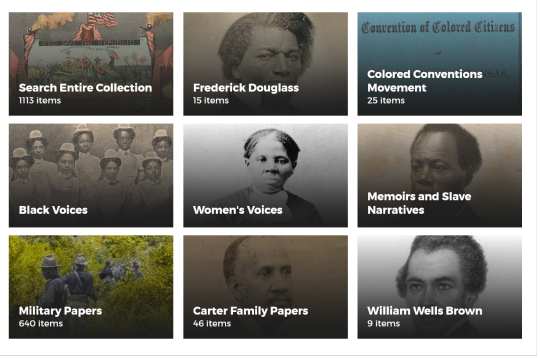
Slavery, Abolition, Emancipation and Freedom: Primary Sources from Houghton Library is a project to digitize and make freely available more than a thousand books and documents from our collections documenting African American history.
108 notes
·
View notes
Text

Double Exposure of "Charlotte Corday", Ekely (EN). Painter Edvard Munch, ca 1930
Read more about the project of digitizing Edvard Munch's artworks.
21 notes
·
View notes